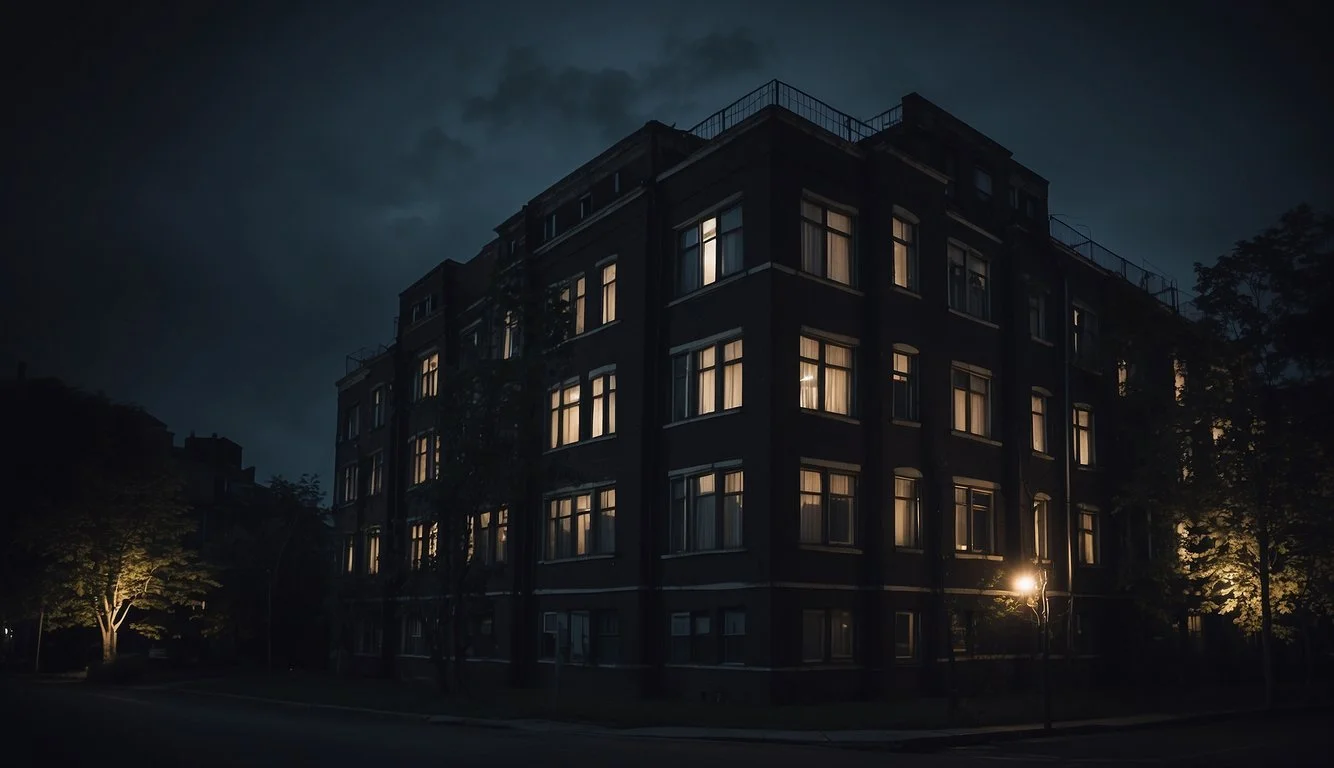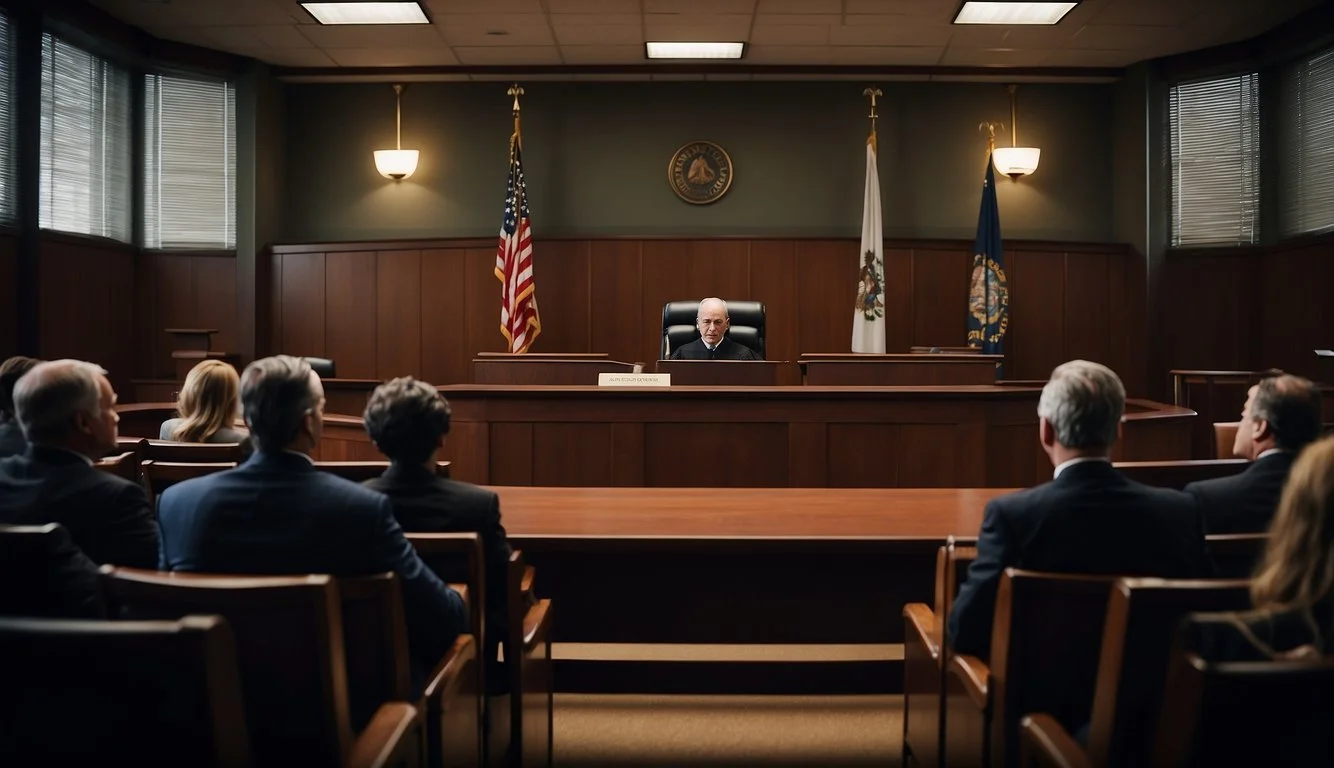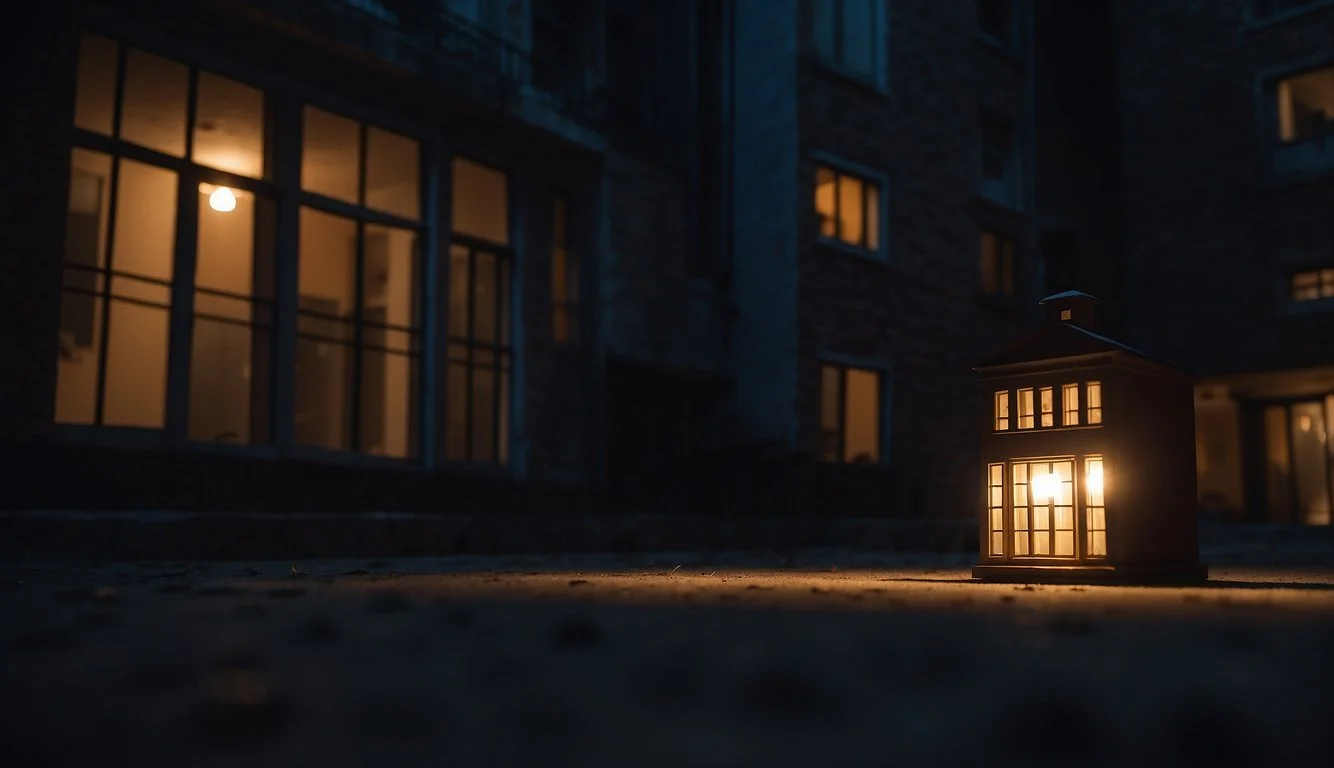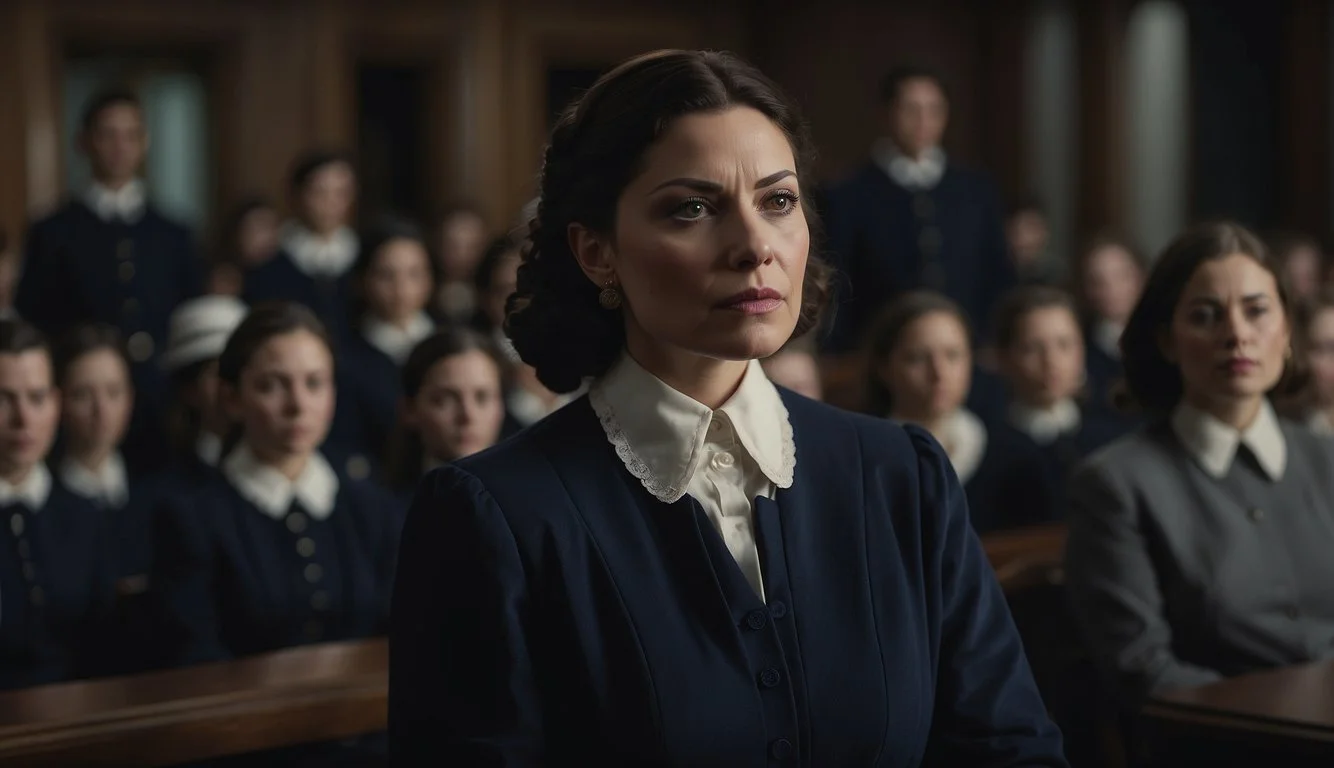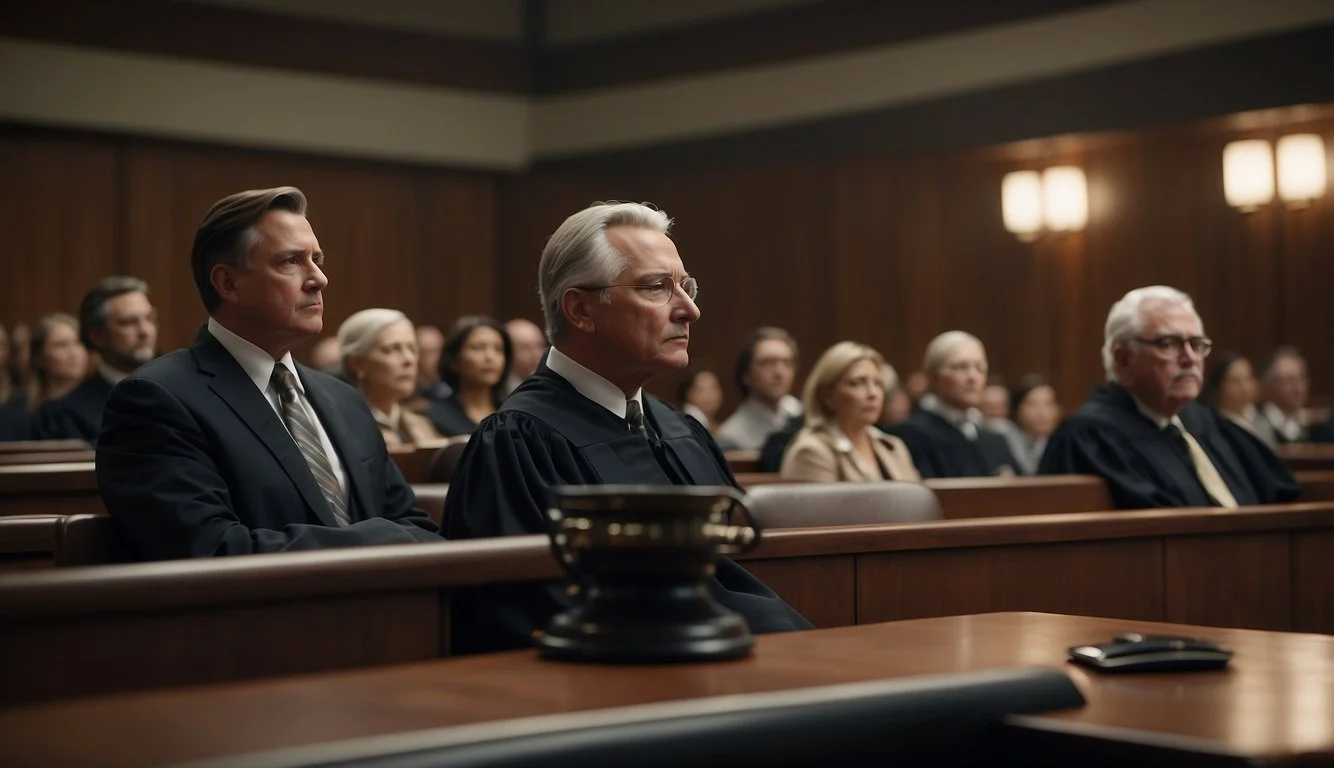Documentary Review: A Life Too Short: The Isabella Nardoni Case (2023)
A Comprehensive Analysis
The documentary "A Life Too Short: The Isabella Nardoni Case (2023)" directed by Micael Langer and Cláudio Manoel, takes a deep dive into one of Brazil's most harrowing true crime stories. This film meticulously explores the murder of 5-year-old Isabella Nardoni, shedding light on the darkest aspects of the investigation and the ensuing media frenzy. Fifteen years after Isabella's tragic fall from her father’s apartment, the documentary offers fresh insights and never-before-seen perspectives on the case.
The narrative follows the relentless quest for justice by Isabella's mother, Ana Carolina Oliveira, who found herself thrust into the national spotlight. Detailed interviews with key figures and a thorough examination of the evidence provide a comprehensive look at the events that unfolded in March 2008. With gripping storytelling and meticulous attention to details, the film not only recounts the tragedy but also critiques the intense public scrutiny that surrounded the case.
The multifaceted documentary doesn't just stop at presenting the facts but delves into the personal struggles of those most affected. It captures the emotional turmoil and the fight against legal and societal obstacles faced by the Nardoni family. This Netflix documentary promises to offer both an illuminating and heart-wrenching portrayal of a case that gripped an entire nation, making it a must-watch for true crime enthusiasts.
Overview of 'A Life Too Short: The Isabella Nardoni Case'
"A Life Too Short: The Isabella Nardoni Case" is a 2023 documentary directed by Micael Langer and Cláudio Manoel. It explores the tragic events surrounding the death of five-year-old Isabella Nardoni in São Paulo, Brazil.
The documentary delves into the events of March 29, 2008, when Isabella fell from her father's apartment. Isabella's mother, Ana Carolina Oliveira, spearheaded efforts to uncover the truth, capturing the attention of the entire nation.
Featuring interviews with key individuals, including Isabella's mother and grandmother, the film presents various perspectives on the case. It showcases evidence, court proceedings, and media reactions, providing an in-depth look at one of Brazil's most well-known homicide cases.
A particularly gripping element is the 911 call featured in the documentary's opening scene. It sets the tone for the investigation and the drama that follows.
Isabella's father, Alexandre Alves Nardoni, and stepmother, Anna Carolina Jatobá, emerged as the primary suspects. The documentary scrutinizes their involvement and the complex dynamics within the family.
The film serves not only as a recounting of a tragic event but also as a commentary on media influence and public opinion. Interviews with law enforcement and legal experts further enrich the narrative, balancing emotional testimony with factual analysis.
Using first-hand accounts and archival footage, "A Life Too Short" offers viewers a comprehensive examination of a heartbreaking case that shook Brazil to its core.
Historical Context
The Isabella Nardoni case took place in Brazil in March 2008, capturing national attention.
Isabella, a five-year-old girl, fell from the sixth floor of her father's apartment building. The incident sparked widespread media coverage.
Key Figures:
Alexandre Alves Nardoni: Isabella's father.
Anna Carolina Jatobá: Isabella's stepmother.
Ana Carolina Oliveira: Isabella's mother.
Initial reports and subsequent investigation identified Alexandre and Anna Carolina as the primary suspects.
Public and media interest surged due to the shocking nature of the allegations. Trials and court proceedings were extensively covered, influencing public opinion significantly.
This case highlighted issues within the Brazilian legal system and societal responses to domestic violence, especially involving children.
The tragic event led to increased awareness and discussions regarding child protection laws and family dynamics.
Content Synopsis
The documentary "A Life Too Short: The Isabella Nardoni Case (2023)" explores the tragic death of five-year-old Isabella Nardoni. Directed by Micael Langer and Cláudio Manoel, it delves into the details surrounding her death in 2008.
Isabella was thrown from her father's apartment window. Her father, Alexandre Alves Nardoni, and stepmother, Anna Carolina Jatobá, became the primary suspects. This case garnered significant media attention in Brazil, highlighting the investigation and subsequent trial.
The film features interviews with Isabella's mother, Ana Carolina Oliveira. The mother recounts the events leading up to and following Isabella's death. Isabella's grandmother also provides her poignant recollections.
The documentary showcases media coverage and public reaction. It emphasizes the intense scrutiny faced by the Nardoni family during the trial. The coverage includes footage and statements from reporters, legal experts, and family friends.
Key aspects highlighted:
Crime Scene: Detailed examination of the apartment and evidence.
Law Enforcement: Insights from the investigators and prosecutors involved.
Court Trials: Key moments from the trials, including testimonies and verdicts.
Personal Accounts: Emotional interviews with family members.
The narrative is presented with a clear timeline, starting from the night of Isabella's death to the trial's conclusion. The film sheds light on the emotional and social impacts of the case.
Viewers are provided a comprehensive look into one of Brazil's most horrifying murder cases.
Filmmaking Techniques
The documentary employs a range of filmmaking techniques to effectively present the tragic case of Isabella Nardoni. Each technique serves to enhance the viewer's understanding and emotional engagement, from visual aesthetics to auditory elements and narrative flow.
Cinematography
The visual approach in A Life Too Short: The Isabella Nardoni Case is carefully crafted to reflect the gravity of the subject matter. The cinematography often uses muted color tones to create a somber mood.
Close-up shots highlight the emotions of interview subjects, emphasizing their pain and despair. Drone footage and wide-angle shots provide a stark contrast, illustrating the urban setting and the height from which Isabella fell. This contrast enhances the storytelling, making the tragedy more palpable.
Sound and Music
The sound design plays a crucial role in setting the tone throughout the documentary. Subtle ambient noises are used to create a sense of place and tension. The music, composed specifically for the film, underscores key moments with a mix of somber strings and minimalist piano.
Voiceovers are clear and professionally mixed, ensuring that they do not overpower the visual elements. Silence and pauses are strategically placed to allow viewers to absorb the emotional weight of the narrative, making the experience more immersive.
Editing
The editing in the documentary is sharp and precise. It seamlessly weaves together interviews, archival footage, and dramatizations to provide a cohesive narrative.
Key moments from the investigation and trial are intercut with personal stories, maintaining a balanced pace and keeping viewers engaged. Flashbacks are used sparingly but effectively, providing crucial background information without disrupting the flow. Transitions are smooth, ensuring that the documentary feels both professional and polished.
Narrative Structure
The documentary follows a chronological narrative structure, which helps in clearly outlining the sequence of events. This approach is beneficial in complex cases like Isabella Nardoni's, where understanding the timeline is crucial.
The story begins with Isabella's tragic death, followed by the investigation, trial, and subsequent impact on those involved. The balanced storytelling ensures that viewers receive a comprehensive view of the case, including perspectives from legal experts, family members, and media personnel. This structured narrative aids in maintaining clarity and focus throughout the film.
Director's Vision
Micael Langer and Cláudio Manoel, the directors of A Life Too Short: The Isabella Nardoni Case, aimed to create a documentary that captures the complexity of the event.
Using archival footage, interviews, and courtroom recordings, they bring a multifaceted narrative to light. This approach provides a comprehensive look into the legal proceedings and media frenzy.
The directors also chose to include first-person accounts from those closely linked to the case. This lends an intimate perspective and emotional depth, making the documentary not just informative but also profoundly moving.
Their vision highlights how the media influenced public opinion and the investigation. By focusing on the crucial interaction between media and law enforcement, they illustrate the broader societal impact of such high-profile cases.
They adopted a neutral stance in their storytelling, letting the facts and testimonies speak for themselves. This impartial perspective helps the audience draw their own conclusions about the events and the surrounding drama.
Langer and Manoel's meticulous research and thoughtful presentation underscore the importance of evidence-based reporting. Their work serves as a reminder of the long-lasting implications of media coverage on public perception and justice.
The use of cinematic techniques such as dramatic reenactments and poignant music further enhances the storytelling. These elements engage the viewer emotionally while providing a clear, factual recounting of the case.
Key Themes and Messages
Justice and Accountability: The documentary emphasizes the quest for justice for Isabella Nardoni. It showcases the rigorous investigation and legal proceedings that eventually held her father, Alexandre Alves Nardoni, and stepmother, Anna Carolina Jatobá, accountable.
Media Influence: The case became a national spectacle in Brazil. The film highlights the media's role, showing how public opinions were quickly formed and influenced by media coverage, despite the often incomplete evidence.
Family Dynamics: The film delves into the complex family relationships. Interviews with Isabella's mother, Ana Carolina Oliveira, and grandmother reveal emotional and personal perspectives on this tragic event.
Public Outcry: The documentary illustrates the national outcry for justice following Isabella's death. This social response put significant pressure on the judicial process and kept the case in the spotlight.
Legal Process: The documentary provides a comprehensive look at the legal journey, from the initial investigation to the trials. It details the challenges faced by law enforcement in piecing together evidence and the courtroom battles for justice.
Impact on Those Involved: Personal interviews shine a light on the long-term effects of the case on Isabella's family and those close to her. This theme explores their emotional struggles and the lasting scars left by the tragedy.
Societal Reflection: The case serves as a mirror reflecting societal issues regarding child protection and domestic violence. Through this lens, the documentary prompts viewers to reflect on broader societal responsibilities and shortcomings.
Critical Reception and Reviews
The documentary "A Life Too Short: The Isabella Nardoni Case" has garnered attention for its detailed portrayal of a tragic event. The film has been reviewed extensively by critics and audience members, providing a comprehensive view of its impact.
Critics' Opinions
Critics have noted the documentary's meticulous attention to detail and presentation of evidence. Rotten Tomatoes highlights its strong narrative and emotional depth, often commending the directors, Micael Langer and Cláudio Manoel, for their skillful approach. Some reviews mention the documentary's ability to bring new insights into the well-known case.
IMDb reviews emphasize the interviews with Isabella's mother, Ana Carolina Oliveira, and other close relatives. These personal accounts add a layer of authenticity and emotional weight. Reporters have also discussed how the film captures the media frenzy surrounding the case, portraying the societal impact.
Audience Response
Viewers have shared varied responses to the documentary. On social media and review platforms like Netflix and IMDb, many expressed deep emotions ranging from sorrow to outrage. They appreciated the transparency and heartfelt narratives of those interviewed. Several comments mention the documentary's careful handling of sensitive content.
Some audience members were particularly affected by the portrayal of the family dynamics and the search for justice. Feedback often highlights the importance of such documentaries in raising awareness and educating the public. The film has sparked discussions, with many calling for justice reforms based on lessons learned from the case.
Cultural Impact
The documentary "A Life Too Short: The Isabella Nardoni Case (2023)" has resonated deeply within Brazilian society. This tragic case involving the murder of a five-year-old girl has not only shocked but also stirred significant public discourse.
Media Sensation: The case became a major media event. Extensive coverage across television, newspapers, and online platforms kept the nation captivated. The documentary effectively highlights the role of media in shaping public opinion.
Judicial Reforms: The case prompted evaluations and debates about the Brazilian judicial system. The public's response underscored the need for legal reforms and greater transparency in legal proceedings.
Public Awareness: The documentary has raised awareness about child abuse and domestic violence. Organizations and activists have used the heightened attention to advocate for stronger protective measures for children.
Impact on Families: The societal spotlight on this case has reinforced the importance of family dynamics and child protection. Conversations around abuse prevention and the responsibilities of parental figures have become more prevalent.
The documentary, through its in-depth exploration of the case and the personal accounts, brings to light the continuing cultural and societal relevance of the Isabella Nardoni case, mirroring the ongoing public engagement and the broader implications it has had on Brazilian society.
Comparison with Other True Crime Documentaries
"A Life Too Short: The Isabella Nardoni Case" brings attention to a tragic and high-profile case from Brazil. This documentary, like many others in the true crime genre, focuses on a detailed investigation, media influence, and interviews with those involved.
Unlike "Making a Murderer," which delves into systemic flaws in the American justice system, this documentary highlights the specific cultural and social impact of the case in Brazil.
Example Comparison:
Documentary Title Focus Investigation Depth Media Influence Cultural Impact A Life Too Short Isabella Nardoni Case Detailed evidence High Significant in Brazil Making a Murderer Steven Avery Case Systemic flaws High National The Staircase Michael Peterson Case Courtroom drama Medium Moderate Don't F**k with Cats Luka Magnotta Case Internet sleuthing Medium Global attention
The detailed exploration of the media's role in shaping public opinion is also seen in "The Staircase," although "A Life Too Short" focuses more on the Brazilian media landscape. Both documentaries provide insights into how media coverage can influence public perception and judicial proceedings.
"A Life Too Short" stands out because of its emotional interviews with family members. Documentaries like "Dear Zachary" or "Capturing the Friedmans" also use personal narratives to evoke a deep emotional response from the audience.
Using expert interviews and first-hand accounts, the documentary presents a comprehensive look at the complexities surrounding Isabella Nardoni’s case. Its approach is reminiscent of "The Keepers," which combines historical investigation with personal stories to uncover truths.
Ethical Considerations in True Crime Storytelling
True crime storytelling has gained significant popularity, sparking debates about the ethical implications involved.
Accuracy and Respect
Creators must ensure the accuracy of the facts presented. Misrepresentation can harm the reputations of those involved. Respect for victims and their families is crucial, avoiding sensationalism that exploits their grief.
Consent and Privacy
Obtaining consent from the families of victims is necessary. Documentaries should respect privacy, avoiding unnecessary intrusions into personal lives.
Sensationalism
Sensationalism can trivialize serious events. Balanced reporting is essential, presenting information without unnecessary dramatization.
Impact on Ongoing Cases
Stories about ongoing cases might influence public opinion and the legal process. It is important to present information responsibly.
Ethical Journalism Practices
Documentaries should follow ethical journalism practices. Transparency in sources and methods builds credibility and trust.
By considering these aspects, true crime storytellers can create content that is both engaging and respectful.
Conclusions
The documentary A Life Too Short: The Isabella Nardoni Case provides an in-depth look at one of Brazil's most tragic and highly publicized murder cases. The direction by Micael Langer and Cláudio Manoel ensures that the narrative remains gripping and illuminating.
The film uses interviews with key figures, such as Isabella's mother, Ana Carolina Oliveira, and her grandmother. These interviews add personal and emotional depth to the tragic events.
The investigation and trial are covered meticulously. Critical details about how the case unfolded are revealed clearly. The documentary also sheds light on the media frenzy that surrounded the case.
With its detailed approach, the film manages to balance the emotional aspects with factual precision. It offers insight into the legal and social implications of the case. Viewers are left with a comprehensive understanding of the tragedy that shook a nation.


